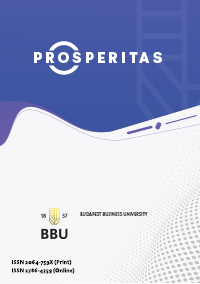Vol. 11 (2024) No. 2
New human capital theory from the perspective of time allocation: Evolution and prospects
In the modern economic system, where the service sector has significantly increased in importance, the accumulation of human capital no longer relies solely on traditional factors such as education, training and healthcare, but increasingly depends on informal education, particularly learning activities during leisure time. Driven by the amalgamation of personality economics and neuroeconomics, a novel theory of human capital has surfaced, which emphasizes the acquisition of cognitive and noncognitive abilities through informal learning activities such as hobbies and social engagements. Utilizing the time allocation theory as a foundation, this study investigates the role of leisure time in bolstering human capital. The paper spotlights the ‘Learning by Doing’ and ‘Learning by Playing’ phenomena, which are instrumental in enhancing practical abilities and creativity. The study offers a critical examination of how human capital theory has evolved, particularly regarding the influence of leisure on skill development. This study also highlights the crucial importance of learning during leisure as a contributing factor to economic growth and positions it as a vital pathway for future human capital accumulation. Moreover, it proposes new avenues of research to deepen the understanding of human capital and leisure economy theories, thereby providing valuable perspectives for the progress of society and the economy.
Download article in PDF format:

